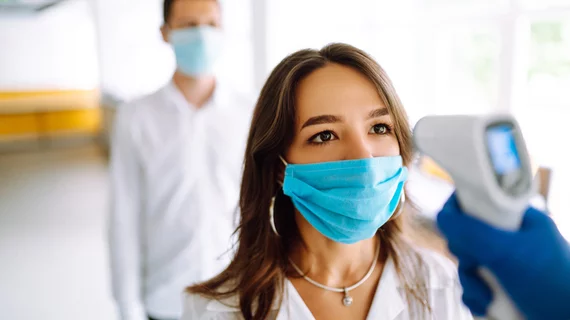A new study has revealed that COVID-19 was likely already spreading in the U.S. much earlier than previously reported. In fact, the study adds to the CDC’s study suggesting the virus was present here as early as December 2019.
That’s according to researchers who examined antibodies in a study called “All of Us” and published their findings in Clinical Infectious Diseases. The study looked at 24,000 blood samples from participants across all 50 states between Jan. 2 and March 18, 2020.
Researchers found COVID-19 positive cases outside the known hotspots in the U.S. at the time, such as Seattle and New York City, which were believed to be prime entry points. Positive cases were found as early as January 7 in Illinois, Massachusetts, Mississippi, Pennsylvania and Wisconsin. In many instances, the positive samples were acquired before the first cases were reported.
"This study allows us to uncover more information about the beginning of the U.S. epidemic and highlights the real-world value of longitudinal research in understanding dynamics of emerging diseases like COVID-19," Josh Denny, MD, MS, chief executive officer of All of Us and an author of the study, said in a statement. "Our participants come from diverse communities across the U.S. and give generously of themselves to drive a wide range of biomedical discoveries, which are vital for informing public health strategies and preparedness."
Researchers were concerned about false positives, which could have skewed their understanding of how and when the virus spread in the U.S. To qualify as a positive case, samples had to test positive for two tests—the Abbott Architect SARS-CoV-2 IgG ELISA and the EUROIMMUN SARS-CoV-2 ELISA (IgG) platforms. Both tests were approved by the FDA under emergency authorization.
The early detection of antibodies in the samples suggest that people in the U.S. had been exposed to the virus weeks earlier.
"Antibody testing of blood samples helps us better understand the spread of SARS-CoV-2 in the U.S. in the early days of the U.S. epidemic, when testing was restricted and public health officials could not see that the virus had already spread outside of recognized initial points of entry," said Keri N. Althoff, PhD, lead author and associate professor of epidemiology at the Johns Hopkins Bloomberg School of Public Health, Baltimore. "This study also demonstrates the importance of using multiple serology platforms, as recommended by the CDC."
Study authors noted several limitations to their study, including the low number of samples from some states. Additionally, it is unknown where people got infected and therefore developed antibodies to the virus, either in their own communities or while traveling.

